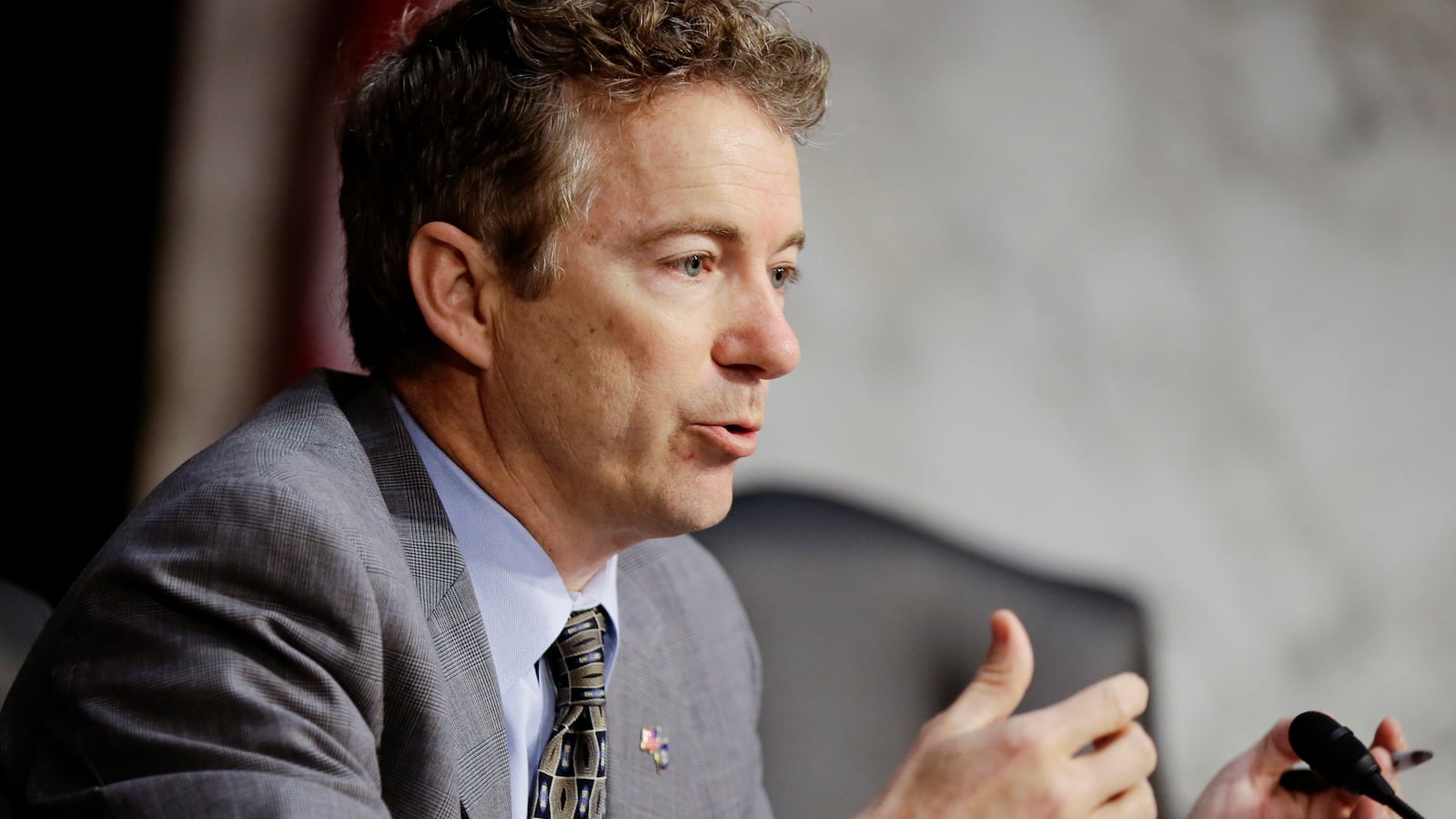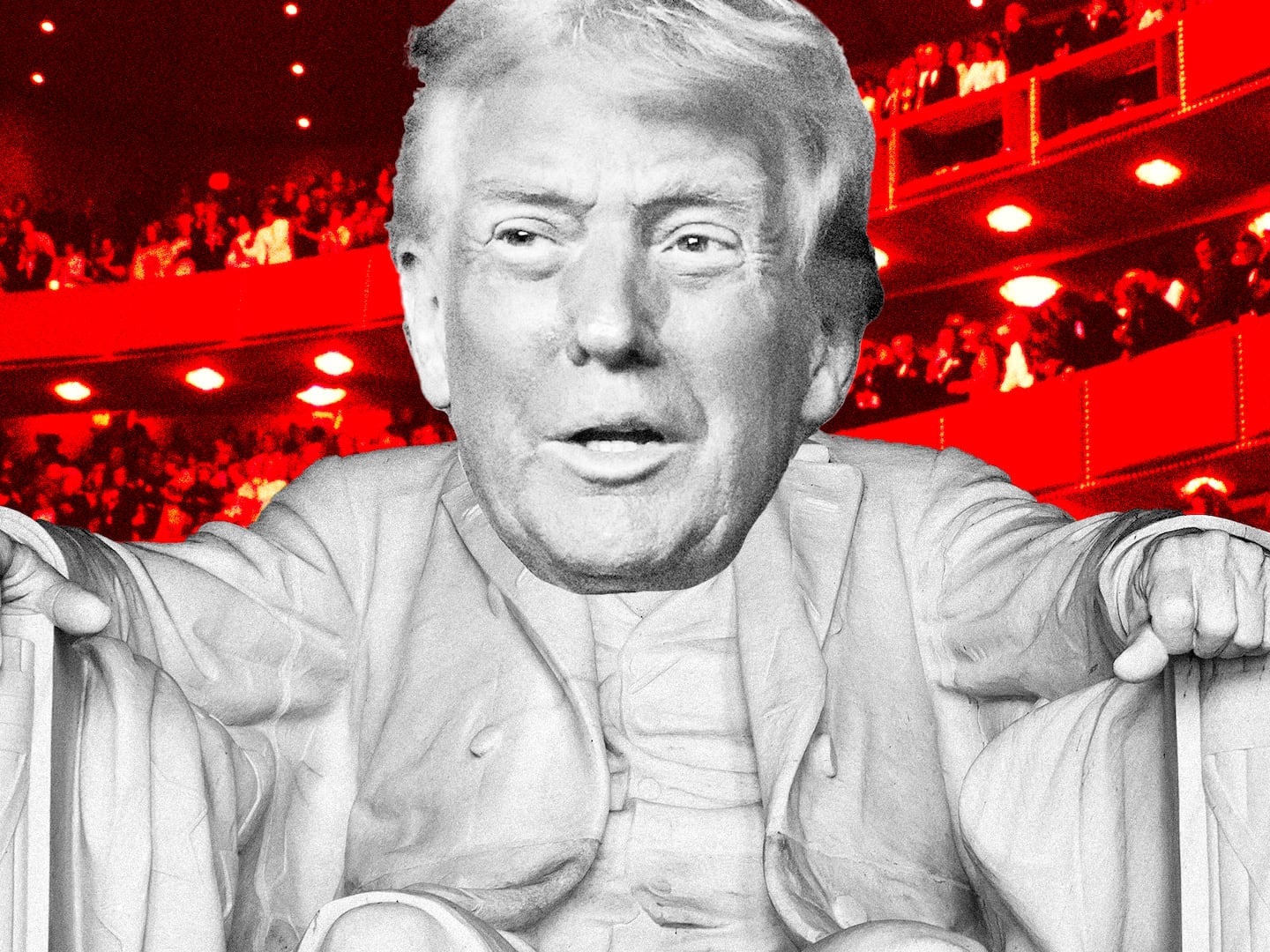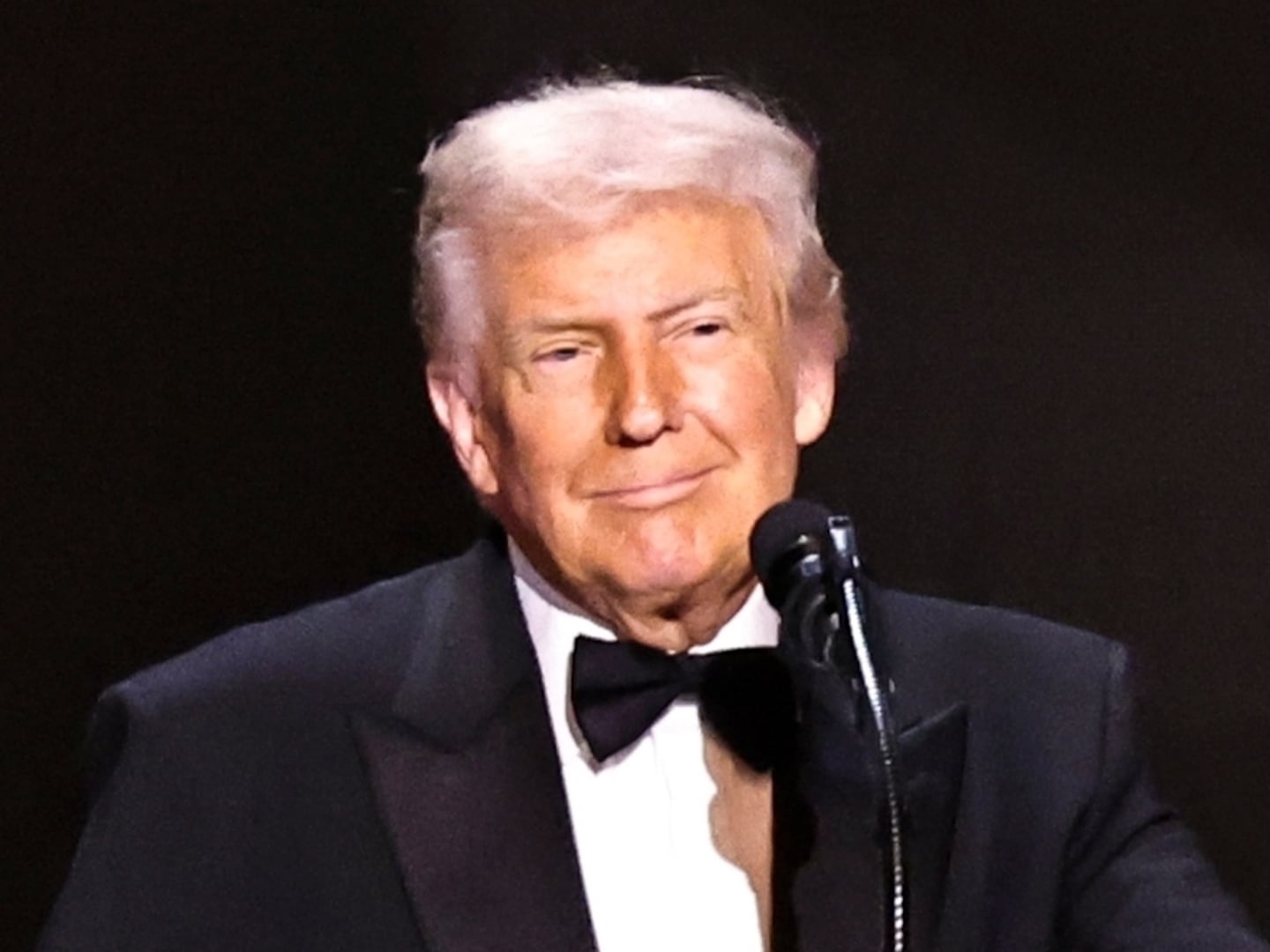Call it the “Empire Strikes Back” speech.

Not because Kentucky Sen. Rand Paul’s foreign-policy speech at the right-wing think tank the Heritage Foundation necessarily called for an expansive American empire or endorsed striking back at enemies; it expressly rebuked both.
But the speech, called “Containment and Radical Islam” and dedicated to the threat of Islamic terrorism and Iran, was a twist on Darth Vader’s light-saber rattling—in this case, it was “I am not my father.”
“Some libertarians argue that Western occupation fans the flames of radical Islam—I agree,” Paul said, before taking a turn away from his small-government fellow travelers. “But I don’t agree that absent Western occupation that radical Islam ‘goes quietly into that good night.’”
Paul’s father, of course, is multiple-time presidential contender and former congressman Ron Paul. He was one of the few presidential contenders from either party in recent cycles to call for a massive retrenchment in American foreign policy, one that would abandon all but the most essential overseas entanglements.It was the senior Paul who described U.S. foreign policy as a “major contributing factor” to the attacks of 9/11.
“Have you ever read the reasons they attacked us? They attacked us because we've been over there; we've been bombing Iraq for 10 years,” he said during a GOP presidential debate in 2007, and added, “We need to look at what we do from the perspective of what would happen if somebody else did it to us.” When Rudy Giuliani rebuked him for “an extraordinary statement, as someone who lived through the attack of 9/11, that we invited the attack because we were attacking Iraq,” the thundering roar of the debate-watching audience left little doubt where the mainstream of the Republican Party stood.
Paul’s speech on Wednesday comes as GOP contenders for the presidency in 2016 are tripping over themselves in their race to define the party going forward. Most of these grasps—Marco Rubio’s and Bobby Jindal’s and Paul Ryan’s—have involved domestic policy, exploring how the Republicans can be both the party of fiscal restraint and low taxes, but also the party of fairness and opportunity. Paul’s address was another step in the “GOP MUST MODERNIZE” drumbeat that has consumed the party since losing the November elections. Only in this case the question was, how can the party lead a world of increasing danger and complexity, but still be the party of fiscal restraint? And it came from a lawmaker whose experience with global affairs is as limited (or, to put it another way, as full) as any of his would-be rivals, but who, due to his last name and pedigree, has an extra burden of proof among the GOP faithful, who remain on the lookout for any gesture that would sap America’s military might of its strength.
So isolationism would never be a real option for the younger Paul, who harbors presidential ambitions arguably more serious than his father’s. But he didn’t endorse the aggressive posture that Republicans and Democrats have taken to foreign affairs, either, dismissing what he called the “bipartisan consensus.”
“When foreign policy has become so monolithic, so lacking in debate that Republicans and Democrats routinely pass foreign-policy statements without debate and without votes, where are the calls for moderation, the calls for restraint?” he said. “Anyone who questions the bipartisan consensus is immediately castigated, rebuked, and their patriotism challenged.”
Paul is right on this point. Just witness the recent presidential election, in which Mitt Romney’s foreign-policy stance largely consisted of him saying that he would be like President Obama, only better. Or witness the relatively muted response to the revelation of the White House’s drone program.
In his speech Wednesday, Paul placed himself outside of this mainstream, but not so far outside as to be confused with his father’s theories of blowback.
Looking for the way forward in this new vision, Paul looked to the past. To the Cold War specifically, and George Kennan’s theories on containment, which Paul quoted from extensively based on a biography of Kennan he had just read by Cold War historian John Lewis Gaddis.
“As Gaddis put it, ‘a path between the appeasement that had failed to prevent WWII and the alternative of a third world war,’” Paul said. “What the United States needs now is a policy that finds a middle path. A policy that is not rash or reckless. A foreign policy that is reluctant, restrained by constitutional checks and balances, but does not appease. A foreign policy that recognizes the danger of radical Islam, but also the inherent weaknesses of radical Islam. A foreign policy that recognizes the danger of bombing countries on what they might someday do. A foreign policy that requires, as Kennan put it, ‘a long-term, patient but firm and vigilant containment of ... expansive tendencies.’ A policy that understands the ‘distinction between vital and peripheral interests.’”
Paul’s solution to this dichotomy boils down to so-called soft power: more diplomacy, more engagement, less policing, and—especially important for the fiscal hawks he is really trying to appeal to—less spending on the Department of Defense.
“It is time for all Americans, and especially conservatives, to become as critical and reflective when examining foreign policy as we are with domestic policy,” he said. “Should our military be defending this nation or constantly building other nations? What constitutes our actual ‘national defense,’ and what parts of our foreign policy are more like an irrational offense? It is the soldier’s job to do his duty—but it is the citizen’s job to question their government, particularly when it comes to putting our soldiers in harm’s way.”






